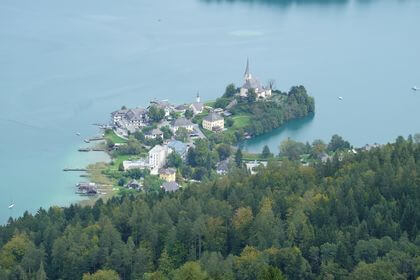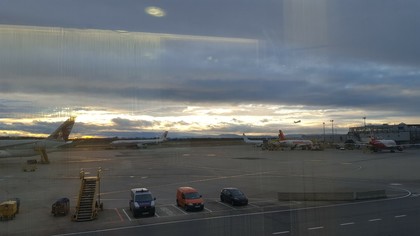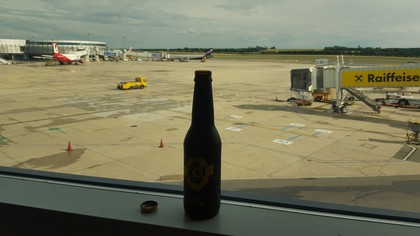Austria

More details
Austria (; German: Österreich [ˈøːstɐˌʁaɪç]), officially the Republic of Austria (German: Republik Österreich, listen ), is a federal republic and a landlocked country of over 8.7 million people in Central Europe. It is bordered by the Czech Republic and Germany to the north, Hungary and Slovakia to the east, Slovenia and Italy to the south, and Switzerland and Liechtenstein to the west. The territory of Austria covers 83,879 km2 (32,386 sq mi). The terrain is highly mountainous, lying within the Alps; only 32% of the country is below 500 m (1,640 ft), and its highest point is 3,798 m (12,461 ft). The majority of the population speaks local Bavarian dialects of German as their native language, and Austrian German in its standard form is the country's official language. Other local official languages are Hungarian, Burgenland Croatian, and Slovene.
The origins of modern-day Austria date back to the time of the Habsburg dynasty, when the vast majority of the country was a ...
part of the Holy Roman Empire. From the time of the Reformation, many northern German princes, resenting the authority of the Emperor, used Protestantism as a flag of rebellion. The Thirty Years War, the influence of the Kingdom of Sweden and Kingdom of France, the rise of the Kingdom of Prussia, and the Napoleonic invasions all weakened the power of the Emperor in the north of Germany, but in the south, and in non-German areas of the Empire, the Emperor and Catholicism maintained control. During the 17th and 18th centuries, Austria retained its position as one of the great powers of Europe and, in response to the coronation of Napoleon as the Emperor of the French, the Austrian Empire was officially proclaimed in 1804. Following Napoleon's defeat, Prussia emerged as Austria's chief competitor for rule of a Greater Germany. Austria's defeat by Prussia at the Battle of Königgrätz, during the Austro-Prussian War of 1866, cleared the way for Prussia to assert control over the rest of Germany. In 1867, the empire was reformed into Austria-Hungary. After the defeat of France in the 1870-1 Franco-Prussian War, Austria was excluded from the new German Empire, although in the following decades, its politics, and its foreign policy, increasingly converged with those of the Prussian-led Empire. During the 1914 July Crisis that followed the assassination of Archduke Franz Ferdinand of Austria on June 28, Austria-Hungary, emboldened by a pledge of German support, on July 28 declared war on Serbia because that country had not fully complied with an Austrian ultimatum. Austria was thus the first to go to war in the July Crisis, which would ultimately escalate into World War I.
After the collapse of the Habsburg (Austro-Hungarian) Empire in 1918 at the end of World War I, Austria adopted and used the name the Republic of German-Austria (Deutschösterreich), later changed to Österreich, in an attempt at union with Germany, but this was forbidden under the Treaty of Saint-Germain-en-Laye (1919). The First Austrian Republic was established in 1919. In 1938 Nazi Germany annexed Austria in the Anschluss. This lasted until the end of World War II in 1945, after which Germany was occupied by the Allies and Austria's former democratic constitution was restored. In 1955, the Austrian State Treaty re-established Austria as a sovereign state, ending the occupation. In the same year, the Austrian Parliament created the Declaration of Neutrality which declared that the Second Austrian Republic would become permanently neutral.
Today, Austria is a parliamentary representative democracy comprising nine federal states. The capital and largest city, with a population exceeding 1.7 million, is Vienna. Other major urban areas of Austria include Graz, Linz, Salzburg and Innsbruck. Austria is one of the richest countries in the world, with a nominal per capita GDP of $43,724. The country has developed a high standard of living and in 2014 was ranked 21st in the world for its Human Development Index. Austria has been a member of the United Nations since 1955, joined the European Union in 1995, and is a founder of the OECD. Austria also signed the Schengen Agreement in 1995, and adopted the euro currency in 1999.
Source: wikipedia
Map
Regions 9
Flights
Most visited cities
Nearby upcoming and completed trips
| 29.7.2022 - 30.7.2022 |





